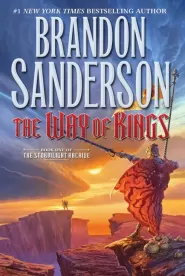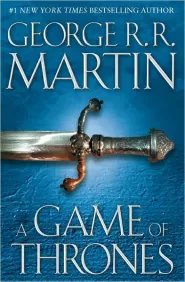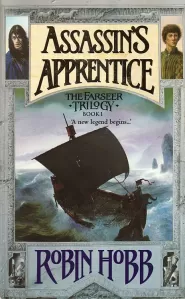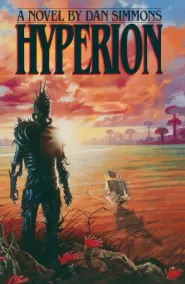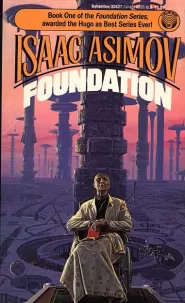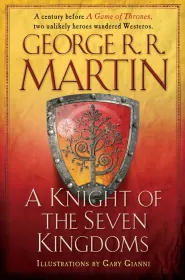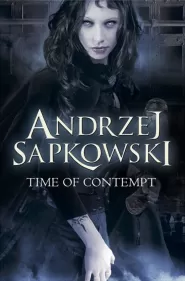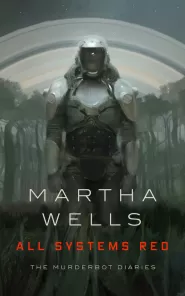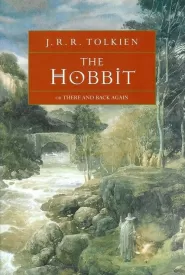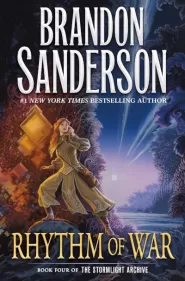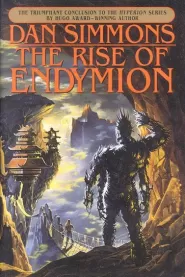When direction fades, action leads ...
Welcome to my bookshelf!
Links: Facebook | LinkedIn | Risingshadow.fi
Archievements
What's New in My Bookshelf
Reading The Lord of the Rings trilogy in the omnibus edition was a unique and incredible experience. Having originally read each book separately, the transition to the omnibus gave me the chance to immerse myself in Tolkien’s epic world in a more fluid, continuous way, and it was as if the story never truly ended, keeping me absorbed from one page to the next without pause.
Read more ...
There’s something truly magical about reading The Fellowship of the Ring, The Two Towers, and The Return of the King together in one volume. The epic journey of Frodo, Sam, Aragorn, and the others feels more cohesive, with each story blending seamlessly into the next. The highs and lows of their adventures, the friendships forged, and the dire stakes of their quest take on even greater weight when experienced as a single narrative. The transitions between books are subtle, making the pace feel like one uninterrupted adventure, rather than separate parts. It almost feels as though Tolkien intended for readers to experience the trilogy this way, with the ebb and flow of the story, its personal moments, and its grand battles unfolding in unison.
Having the trilogy together in one volume also brought a deeper sense of connection to the characters and their quests. I could flip back and forth between moments, recalling the epic battles at Helm’s Deep and Pelennor Fields, or the quiet, yet profoundly significant, moments of Sam and Frodo’s journey. It was a constant reminder of just how vast and intricate Tolkien’s world truly is.
The Lord of the Rings omnibus edition is a fantastic way to revisit Tolkien’s world and immerse yourself in the timeless adventure of Middle-earth from start to finish in one fell swoop. The journey feels even more epic, the stakes even higher, and the resolution all the more satisfying. It’s a must-have for any fan of fantasy literature, and for anyone who has yet to experience the magic of this story, this is the definitive way to do so.
The Return of the King is the powerful conclusion to J.R.R. Tolkien’s The Lord of the Rings trilogy, and it delivers everything that makes this series a monumental part of fantasy literature. After the gripping journey through The Fellowship of the Ring and The Two Towers, this final book wraps up the saga in a way that feels both satisfying and deeply moving.
Read more ...
The stakes have never been higher. Frodo and Sam are nearing Mount Doom, the burden of the One Ring weighing heavily on them as they face unimaginable challenges. Meanwhile, Aragorn steps into his rightful role as king, rallying armies and preparing for the final confrontation with Sauron. The battle sequences are epic, and Tolkien’s ability to paint grand, heroic moments is at its peak here. The clash of forces at the Battle of the Pelennor Fields is breathtaking, filled with tension, honor, and loss.
What really makes The Return of the King stand out, however, is the emotional payoff. Every character’s journey reaches its own conclusion, and their growth throughout the series feels earned. Aragorn’s ascension to the throne is inspiring, Frodo’s internal battle with the Ring’s power is heart-wrenching, and Sam’s loyalty and love for his friend shine through in a way that truly exemplifies the themes of friendship and sacrifice at the heart of the series.
Tolkien masterfully ties up loose ends and provides a fitting end to the epic journey, with moments of peace after the chaos of battle, reminding us of the quiet heroism of the characters who began as unlikely adventurers. The book also delves into the consequences of war and the price of victory, with an emotional conclusion that’s as bittersweet as it is triumphant.
The Return of the King is a remarkable conclusion to a legendary tale. It’s a book that not only closes the chapter on Middle-earth but also leaves an enduring legacy in fantasy literature. It’s a powerful, fulfilling end to an unforgettable journey, cementing The Lord of the Rings as one of the greatest stories ever told.
I actually read The Fellowship of the Ring after The Two Towers, which might sound like a strange way to approach the series, but it didn't take away from the experience at all. If anything, it added a layer of depth to the journey I had already embarked on. After being swept away by the second book and its epic battles and quests, going back to the beginning felt like stepping into the roots of something grander, a foundation that set up everything I had already come to love about the story.
Read more ...
The first book in The Lord of the Rings introduces us to the core of Tolkien’s incredible world, and I was immediately hooked by the characters. Frodo’s journey from the peaceful Shire to the far more dangerous world beyond is filled with moments of wonder, danger, and the slow realization that this simple hobbit has a monumental role to play. The fellowship—Aragorn, Gandalf, Legolas, Gimli, Boromir, and Sam—form a group that’s both heroic and relatable, each with their own struggles, doubts, and moments of growth.
Tolkien’s writing in The Fellowship of the Ring is rich with detail and history. Middle-earth feels alive and expansive, filled with deep lore that, even as a reader who came in midway through the story, I could appreciate. The pacing may feel slower than in The Two Towers—but it sets the stage, building tension and slowly revealing the complexity of the quest that lies ahead.
Even though I missed the build-up from the first book by reading it out of order, I quickly understood the depth and significance of the events. This book is the start of something special—epic, moving, and unforgettable. And looking back, it makes complete sense why The Fellowship of the Ring is considered a classic, as it provides the perfect introduction to the legendary journey that follows.
I first read The Two Towers when I was 15, completely by accident. I had gone to the library looking for something to read and picked it up without realizing it was the second book in The Lord of the Rings. It was the early ‘90s, and I hadn’t heard about the series before, so I just started reading. It didn’t take long to realize I had missed the first part of the story, but it didn’t matter—this book pulled me in so completely that I quickly picked up on what was happening and got lost in the adventure.
Read more ...
This was my first fantasy novel, and it changed everything for me. The epic journey of Aragorn, Legolas, and Gimli, the desperate battle of Helm’s Deep, Frodo and Sam’s struggle through the ever-darkening lands of Mordor—it was all so vivid, so powerful. Even without the first book as context, I could feel the weight of the quest, the depth of Tolkien’s world-building, and the sheer magic of the story.
This book is the reason I fell in love with fantasy. It shaped my reading tastes, my interests, and eventually even led me to create Risingshadow a few years later. Looking back, The Two Towers wasn’t just an amazing book—it was the gateway to a whole new world for me. And for that, it will always be special.
The Rise of Endymion brings the Hyperion Cantos to a powerful and emotional conclusion. It continues the journey of Raul Endymion and Aenea, diving deeper into the mysteries of the universe Simmons has built. While it didn’t quite hit the mind-blowing heights of Hyperion and The Fall of Hyperion, it was still an incredible read.
Read more ...
What really stood out in this book was the character development. Aenea becomes one of the most fascinating characters in the series, and her relationship with Raul is at the heart of the story. Their journey takes them to new worlds, introducing more of Simmons’ stunning world-building, and the philosophical themes of love, destiny, and the nature of consciousness are woven in beautifully.
The stakes are higher than ever, and the Pax, along with the powerful Father Captain de Soya, play a major role in the unfolding conflict. Simmons doesn’t hold back in delivering both action and deep, thought-provoking moments. The ending is bittersweet, and while it might not have been the most perfect conclusion, it felt fitting for the story that had been building across four books.
Overall, The Rise of Endymion is a fantastic finale to one of the greatest sci-fi series ever written. It’s a book that makes you think, feel, and appreciate just how ambitious and unique the Hyperion Cantos truly is.
After the masterpiece that was The Fall of Hyperion, I wasn’t sure what to expect from Endymion. It takes the story in a new direction, with new main characters and a different style, but it still delivers an incredible sci-fi adventure. While it didn’t quite reach the perfection of the first two books, it was still a fantastic read.
Read more ...
This book introduces Raul Endymion as the main protagonist, and while he’s very different from the previous leads, I really liked his voice and perspective. His journey, along with Aenea, is a wild and dangerous one, taking them across beautifully crafted worlds while being hunted by the Pax and their terrifying new enforcer, Father Captain de Soya. Simmons’ world-building remains top-tier, and the mix of high-tech space opera with philosophical depth makes this feel just as immersive as the previous books.
The story focuses more on adventure and character growth rather than the complex political and philosophical layers that dominated the first two books. That’s not necessarily a bad thing—it makes Endymion a more fast-paced and personal journey, but at times, I did miss the grand, intricate plotting of Hyperion and The Fall of Hyperion.
That being said, the book still has so many great moments, and the ending sets up big things to come in the final book. It’s a worthy continuation of the series, just with a different feel. Definitely a must-read for fans of the first two, even if it doesn’t quite reach the same legendary status.
If Hyperion was amazing, The Fall of Hyperion somehow takes everything to an even higher level. It’s a completely different kind of book—where the first was a journey filled with personal stories and mysteries, this one delivers the full-scale, epic conclusion that ties everything together. I was completely hooked from start to finish.
Read more ...
The story shifts from a personal pilgrimage to a massive, galaxy-spanning conflict. The stakes are higher than ever, and Simmons expertly weaves together politics, war, philosophy, and mind-bending science fiction. The AI-driven future of humanity, the mysteries of the Shrike, and the fate of the Hegemony all collide in a way that is both unpredictable and completely gripping.
One of the things I loved most was how the characters evolve. The connections between them become deeper, and their struggles feel even more intense. And then there’s the poet John Keats—his role in the story is so brilliantly done that it just left me in awe.
Simmons’ writing is stunning, balancing beautiful prose with deep, thought-provoking themes. The book is packed with action, emotion, and twists that keep you guessing until the very end. It’s rare to find a sequel that not only lives up to its predecessor but surpasses it in many ways. The Fall of Hyperion is truly a masterpiece of science fiction, and after finishing it, I just had to sit back and take it all in.
For years, Hyperion sat on my reading list, always pushed aside for something else. I had heard great things about it, but the cover and description never really pulled me in. I have no idea why I waited so long—because when I finally picked it up, it completely blew me away. This is hands down one of the best sci-fi books I’ve ever read.
Read more ...
The structure is unique, almost like The Canterbury Tales in space, with each character telling their own story during their journey to the mysterious Time Tombs. And every single one of those stories is incredible—dark, emotional, and thought-provoking. Some are tragic, some are terrifying, and all of them slowly piece together the larger mystery surrounding the Shrike and the fate of the universe.
Dan Simmons’ world-building is mind-blowing. The mix of advanced technology, AI, time distortions, and human history creates such a deep and immersive setting. But what really makes Hyperion special is its characters. Each of the travelers is so well-written and distinct, and by the end, I was completely invested in all of them.
This book is intelligent, poetic, and full of big ideas about fate, faith, war, and the nature of time. And yet, it never feels overwhelming—it’s gripping from start to finish. If you love sci-fi and somehow haven’t read Hyperion yet, don’t wait like I did. It’s absolutely worth it.
Assassin’s Quest is an emotional and breathtaking conclusion to the Farseer Trilogy. After the devastating events of Royal Assassin, Fitz’s journey takes a new turn, one filled with loneliness, hardship, and self-discovery. This book is slower and more introspective than the previous ones, but for me, it was a perfect.
Read more ...
Fitz is broken—physically, mentally, and emotionally—but he refuses to give up. His path is long and often frustrating, but it feels so real. Robin Hobb doesn’t just tell a story; she makes you feel every struggle, every moment of despair, and every small victory. The deep bonds between Fitz and Nighteyes, Fitz and the Fool, and even his complicated relationships with Burrich and Verity make this book incredibly powerful.
The world expands as Fitz ventures beyond Buckkeep, and while the journey is slow at times, the payoff is worth it. The Skill and the Wit become even more fascinating, and the way magic is woven into the story makes everything feel deeply personal rather than just a tool for grand battles. The final chapters are intense, emotional, and leave a lasting impact.
By the time I finished, I felt both satisfied and heartbroken. Assassin’s Quest isn’t just the end of a trilogy—it’s an unforgettable experience. Hobb’s writing is raw, beautiful, and deeply immersive, making this one of the best fantasy series I’ve ever read.
Royal Assassin is everything I hoped for after Assassin’s Apprentice, and it completely lived up to my memories of this series. This book takes everything from the first installment—Fitz’s struggles, the court intrigue, the emotional weight—and pushes it even further.
Read more ...
Fitz’s journey in this book is painful but incredibly compelling. He’s torn between duty and his own desires, constantly pushed to his limits, and the way Robin Hobb writes his suffering feels so real. The relationships, especially between Fitz, Burrich, Verity, and the Fool, are beautifully written, full of raw emotion and quiet, powerful moments. The bond between Fitz and Nighteyes is also a highlight, bringing both warmth and heartbreak to the story.
The tension at Buckkeep builds steadily, and watching the slow, inevitable downfall as Regal tightens his grip is infuriating in the best way. You just want to scream at some characters to open their eyes and see what’s happening. Hobb’s ability to make you feel so deeply connected to these characters and their struggles is what makes this book so special.
The ending left me emotionally wrecked, even knowing what was coming. Royal Assassin is a masterpiece of character-driven fantasy, full of heartbreak, political intrigue, and unforgettable moments. It’s one of those books that stays with you long after you turn the last page.
I first read Assassin’s Apprentice back in 1996, and now, after re-reading it, I can say it’s just as incredible as I remember. Robin Hobb’s storytelling is immersive, and from the very first page, I was drawn back into the life of FitzChivalry Farseer.
Read more ...
Fitz’s journey as a royal bastard turned assassin’s apprentice is filled with hardship, loneliness, and the constant struggle to find his place in the world. Hobb’s character work is exceptional, making Fitz one of the most deeply human protagonists I’ve ever read. His pain, doubts, and small moments of happiness feel real, and that emotional depth makes the story hit hard.
The world-building is rich but subtle, weaving in court intrigue, the mysterious Skill and Wit magic systems, and a looming sense of danger. The slow, character-driven pace might not be for everyone, but I love how it lets every moment sink in, making the relationships and betrayals feel even more impactful.
Even after all these years, Assassin’s Apprentice remains one of the best fantasy books I’ve ever read. It’s a beautifully written, deeply emotional story that only gets better with time.
